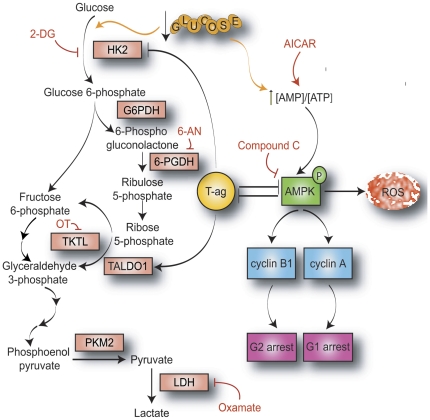Figure 8. Mechanism and significance of metabolic signaling pathways affected by the presence of JCV T-antigen.
JCV T-antigen is downregulated by glucose deprivation in an AMPK-dependent manner. During periods of glucose deprivation, T-antigen inhibits AMPK phosphorylation, which prevents the induction of reactive oxygen species (ROS) and subsequent cytotoxicity. Additionally, T-antigen relieves AMPK-mediated cyclin B1 and cyclin A inhibition, leading to decreased G1 arrest. Glucose deprivation induces both enhanced glycolytic flux to maintain high levels of ATP production as well as enhanced pentose phosphate pathway activation to supply reducing equivalents in the form of reduced nicotinamide adenine dinucleotide phosphate (NADPH) to counteract ROS production produced by glycolysis. T-antigen upregulates transaldolase-1 (TALDO1) expression to shift intermediates from the pentose phosphate pathway towards glycolysis to enhance ATP production and also prevents hexokinase 2 (HK2) upregulation during glucose deprivation. (HK2, hexokinase; G6PDH, glucose 6-phosphate dehydrogenase; 6-PGDH, 6-phoshogluconate dehydrogenase; TKTL, transketolase; PKM2, pyruvate kinase M2; LDH, lactate dehydrogenase; 2-DG, 2-deoxyglucose; 6-AN, 6-aminonicotinamide; OT, oxythiamine).

